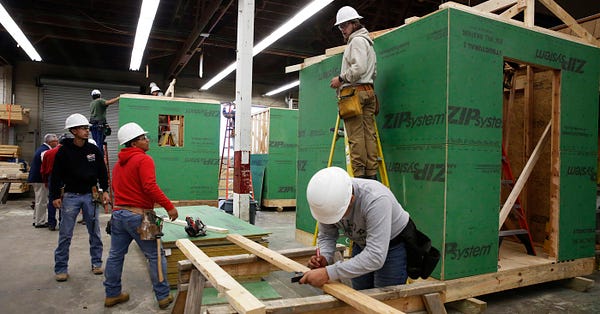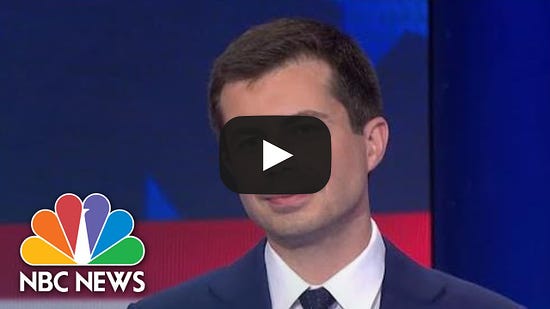Why the Poor Stay Poor in America - College Students Living In Their Cars
Welcome to Crime and Punishment: Why the Poor Stay Poor in America. I’m thrilled that you signed up to read my newsletter, and I hope that together, we can make a difference.
“It’s not just about money” “That brings us to the bigger issue. This is not really a debate about fiscal policy. It’s about whether higher education should be a commodity or a public service.” Maggie Astor, The New York Times, 2019   Our country has been debating for decades what to do about the rising cost of college tuition, enormous student loan debt, the size of government grants and loans for students and whether to make public, two and four year colleges tuition free. Recently though, President Biden has taken some action. He has to date, forgiven more student loan debt than any other President: $17 billion in targeted relief effecting over 700,000 people, and he extended the “pandemic related pause” on student loan repayments and interest three times (the latest extension will expire on May 1, unless it is extended again).¹ And in mid-March, as part of the short term budget bill, Congress raised the maximum amount of a Pell Grant by $400 to $6,895. Although it doesn’t sound like much, it’s a 6.2% raise and the largest increase to Pell grants in 10 years. Given rising tuition costs, though, it still isn’t enough to keep students out of poverty. According to this recent article from The Progressive Magazine:
The story features several students who are living out of their cars in order to pay their tuition costs. Fortunately, over 30 schools across the country have started their own funding program called Faculty and Students Together (FAST) Funds that provide emergency money for students to keep them enrolled. The article also points out a startling figure:
This New York Times article from 2019, which discusses the then Democratic Presidential primary candidates’ varying take on whether public college should be tuition free, nails one of the big questions swirling about higher education today: Is it a commodity to be sold to students via interest bearing loans, or an idea, like free K-12 public schools were over 100 years ago, and deemed worthy of substantial government support?² I lean toward the latter idea: That by today’s standards, an education beyond high school is akin to a necessity, like K-12 was declared over a century ago. Although the Constitution leaves education decisions primarily up to the states, our founding fathers understood that an educated electorate is essential for a participatory democracy like ours. But educating our populace has been a shockingly slow process:
I believe formal education beyond high school is a positive and should be available for as many people in our country as possible, and the more intellectually rigorous the better. That specific type of learning is something no one can take away from you. But neither is the hands on training for a job in the trades, like construction, electrical or plumbing work, among others. This NPR article published just days ago discusses the effect the pandemic had on higher education, including two-year colleges. It turns out that many students, like many employees, are pausing to re-think the purpose and direction of their education and career, and choosing a different path.
When Transportation Secretary, Pete Buttigieg, was running for President in 2019, he often articulated interesting ideas that were different from the other candidates — he had a different way of analyzing the same issues but generating a different perspective. I don’t recall any other candidate in recent history, emphasizing that our economy should support and work for those who choose not to attend college, but here’s what Buttigieg said during a presidential debate:  In the steel town on the Ohio River where I was raised, I’m guessing that most of its population did not have college degrees. But most people did have steady jobs in the steel mills which paid enough to allow them a middle class life. They worked hard to support their families and many were able to send their children to college if they chose that route. My father graduated from the local Catholic College, but he didn’t need that degree to work as an insurance agent, or the other jobs he worked before that, yet he was proud that he was the first in his family to graduate college thanks to the GI Bill. But now we have students whose apartment is their car, because they are trying to make it through college. Although some in this perilous situation are succeeding, like the woman featured in the Progressive Magazine story, how many others are not? I’d love to hear your thoughts about forgiving student loan debt, climbing tuition prices, students living in their cars to get a degree, and whatever else strikes your fancy. Have at it! As always, if you are not already a free or paid subscriber, please consider joining our community today. 2 This is a fantastic primer on how and why the K-12 public school system came to be in the United States, written by the Center on Education Policy. https://files.eric.ed.gov/fulltext/ED606970.pdf You’re on the free list for Crime and Punishment: Why the Poor Stay Poor In America. All posts are free for now, but if you’d like to get ahead of the crowd, feel free to support my work by becoming a paid subscriber. |
Older messages
Sunday Evening Reads...On Monday!
Tuesday, March 29, 2022
A Few Resources For Your Own Research
The Power Of Words
Saturday, March 26, 2022
Listen now (8 min) | To Change Our Hearts, Our Minds... And Our Public Policy
Accidental Injury and Death:
Saturday, March 19, 2022
Listen now (9 min) | How And Why Tragedy Intersects With Poverty
Sunday Evening Reads
Monday, March 14, 2022
A Mishmash Of Recommended Readings and Viewings
A Windfall Profits Tax
Saturday, March 12, 2022
Listen now (6 min) | Should the Big Oil Companies Be Taxed To Even the Playing Field?
You Might Also Like
Kendall Jenner's Sheer Oscars After-Party Gown Stole The Night
Tuesday, March 4, 2025
A perfect risqué fashion moment. The Zoe Report Daily The Zoe Report 3.3.2025 Now that award show season has come to an end, it's time to look back at the red carpet trends, especially from last
The FDA Just Issued a Recall on a Supplement — Because it Contains an ED Drug
Monday, March 3, 2025
View in Browser Men's Health SHOP MVP EXCLUSIVES SUBSCRIBE The FDA Just Issued a Recall on a Supplement — Because It Contains an ED Drug The FDA Just Issued a Recall on a Supplement — Because It
10 Ways You're Damaging Your House Without Realizing It
Monday, March 3, 2025
Lenovo Is Showing off Quirky Laptop Prototypes. Don't cause trouble for yourself. Not displaying correctly? View this newsletter online. TODAY'S FEATURED STORY 10 Ways You're Damaging Your
There Is Only One Aimee Lou Wood
Monday, March 3, 2025
Today in style, self, culture, and power. The Cut March 3, 2025 ENCOUNTER There Is Only One Aimee Lou Wood A Sex Education fan favorite, she's now breaking into Hollywood on The White Lotus. Get
Kylie's Bedazzled Bra, Doja Cat's Diamond Naked Dress, & Other Oscars Looks
Monday, March 3, 2025
Plus, meet the women choosing petty revenge, your daily horoscope, and more. Mar. 3, 2025 Bustle Daily Rise Above? These Proudly Petty Women Would Rather Fight Back PAYBACK Rise Above? These Proudly
The World’s 50 Best Restaurants is launching a new list
Monday, March 3, 2025
A gunman opened fire into an NYC bar
Solidarity Or Generational Theft?
Monday, March 3, 2025
How should housing folks think about helping seniors stay in their communities? ͏ ͏ ͏ ͏ ͏ ͏ ͏ ͏ ͏ ͏ ͏ ͏ ͏ ͏ ͏ ͏ ͏ ͏ ͏ ͏ ͏ ͏ ͏ ͏ ͏ ͏ ͏ ͏ ͏ ͏ ͏ ͏ ͏ ͏ ͏ ͏ ͏ ͏ ͏ ͏ ͏ ͏ ͏ ͏ ͏ ͏ ͏ ͏ ͏ ͏ ͏ ͏ ͏ ͏ ͏ ͏ ͏ ͏ ͏ ͏ ͏
The Banality of Elon Musk
Monday, March 3, 2025
Or, the world we get when we reward thoughtlessness ͏ ͏ ͏ ͏ ͏ ͏ ͏ ͏ ͏ ͏ ͏ ͏ ͏ ͏ ͏ ͏ ͏ ͏ ͏ ͏ ͏ ͏ ͏ ͏ ͏ ͏ ͏ ͏ ͏ ͏ ͏ ͏ ͏ ͏ ͏ ͏ ͏ ͏ ͏ ͏ ͏ ͏ ͏ ͏ ͏ ͏ ͏ ͏ ͏ ͏ ͏ ͏ ͏ ͏ ͏ ͏ ͏ ͏ ͏ ͏ ͏ ͏ ͏ ͏ ͏ ͏ ͏ ͏ ͏ ͏ ͏ ͏ ͏ ͏ ͏
“In life I’m no longer capable of love,” by Diane Seuss
Monday, March 3, 2025
of that old feeling of being / in love, such a rusty / feeling, ͏ ͏ ͏ ͏ ͏ ͏ ͏ ͏ ͏ ͏ ͏ ͏ ͏ ͏ ͏ ͏ ͏ ͏ ͏ ͏ ͏ ͏ ͏ ͏ ͏ ͏ ͏ ͏ ͏ ͏ ͏ ͏ ͏ ͏ ͏
Your dishwasher isn’t a magician
Monday, March 3, 2025
— Check out what we Skimm'd for you today March 3, 2025 Subscribe Read in browser Together with brad's deals But first: 10 Amazon Prime benefits you may not know about Update location or View
